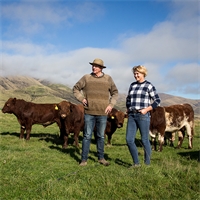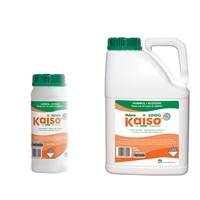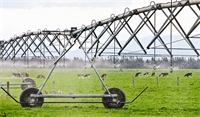27Nov
Forage brassica insect control
Words and image supplied by FMC
Last season, Exirel® Insecticide from agricultural sciences company FMC, was approved for helicopter application, offering farmers an aerial Integrated Pest Management (IPM) compatible option and greater flexibility when spraying forage brassicas across NZ.
This season, FMC Area Business Manager Nick George is pleased to share the new Exirel® Insecticide label claim approved for European leaf miner control in fodder beet.
Exirel® is a Group 28 diamide insecticide containing the single active ingredient cyantraniliprole which is used to control sucking and chewing insect pests. “European leaf miner is very susceptible to Exirel® so it is great to be able to use it in fodder beet this season,” said Nick.
In other Forage brassica crops Exirel® is very effective on caterpillars such as cabbage white butterfly and diamond back moth, while also offering good suppression of aphids.
Exirel® has a superior fit within an IPM program through its selectivity to transient beneficial insects such as parasitic wasps, hoverflies, lacewings, ladybirds, damselflies and resident beetles, mites, and spiders.
“We want to leave these beneficial insects alone so they can carry on working for us 24/7 by preying on and parasitising insect pests,” said Nick.
Over recent years FMC has worked closely with distributor technical field teams to improve knowledge of IPM as an approach to optimise insect pest control within forage brassicas. The Ruralco On-Farm Account Managers and some store staff have been part of this recently with pre-season training on IPM and insecticide use.
“The pre-season training involved three parts” said Nick. “Exirel® product training, understanding IPM and how to bring Exirel® + IPM together. This is followed up with in-field training and support during the season.”
Familiarisation with the product Exirel® included looking at its innovative mode of action that ensures pests stop feeding rapidly to minimise damage to the crop. Translaminar activity and local translocation allow Exirel® to reach further into the crop canopy to control insects that were not immediately targeted by the spray application. IPM includes using three insect pest control methods together in a compatible way; the combination of which can provide a better outcome than any one method on its own. The three methods include biological control (beneficial insects), cultural control (management techniques) and chemical control (IPM friendly insecticides).
Understanding insect pests and beneficial species at each crop stage means a plan can be implemented from establishment through to late crop stages. Broad spectrum insecticides still have their place at early establishment of the crop when beneficial insect populations are minimal. This allows best use of selective Group 28 insecticides (Exirel®) during mid/late stages of the crop to reduce risks associated with Group 28 resistance.
“Exirel® is the perfect fit for an IPM approach because it uses only one active ingredient, cyantraniliprole, minimising resistance and the risk to beneficial insect species within the crop,” said Nick.
Once the crop is established, apply Exirel® at the first sign of pest pressure to minimise pest impact on yield and to reduce the spread of insect transmitted disease, while at the same time helping the establishment of beneficial populations. Have a plan for each crop stage, monitor the crop and apply the right active ingredient for the pest and beneficial species present.
Continue to monitor the crop throughout the season for signs of beneficial activity such as mummified aphids and parasitised caterpillars, along with overall reductions in pest populations. Your Ruralco On-Farm Account Manager will be able to help with this. Understanding IPM and knowing your insects, along with the selective insecticide Exirel® can provide a higher yielding, lower cost and more sustainable forage brassica crop.
Talk to your local Ruralco On-Farm Account Manager about the use of Exirel® + IPM in your forage brassica crop this season.
Related

Driven by a passion for Merino wool and homegrown entrepreneurial approach, Simon and Kirsty William...
Read More

If there’s one thing aphids like, apart from feeding on young wheat and barley seedlings, it’s war...
Read More

Long before farm nutrient management came under scrutiny, one New Zealand pasture breeding company w...
Read More

The ‘holy grail’ is a ewe flock that lambs in good condition, that is well fed in the weeks leadin...
Read More

There’s a convenient, cost-effective way to keep your nitrogen investment in the ground for plant u...
Read More

Would you like to know how you can best influence your lambing percentages and achieve a higher twin...
Read More